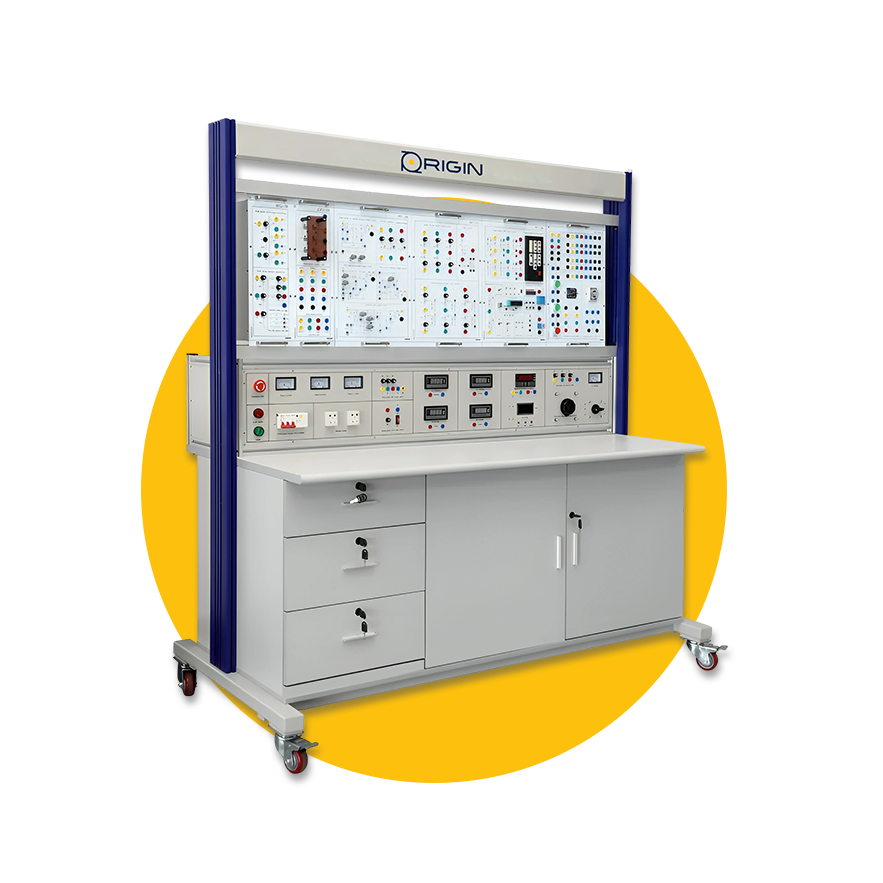Power Electronics Lab Products

AC to DC converter training system
Code : (EP-31)
Line-commutated converters permit power to be fed from an AC or three-phase system to a DC circuit.
These can be designed for operation in controlled mode using thyristors and tries or uncontrolled mode using diodes.
• The diode, thyristor, and tri-ac fundamentals Changing AC to DC
• Principles of control: phase-control, full-wave control, burst firing control, pulse pattern control, how rectifiers work, how inverters work
• Circuit types: M1, M2, M3, B2, B6, M1C, M2C, M3C, B2C, B6C, B2HA, B2HK, B2HZ, B6C, B6HA, B6HK, W1C, W3C
• Loads with resistance and inductance
• Characteristics of control and operational graphs
• Circuit for reducing voltage spikes
• Using computers for data collection
• Analyzing frequency and examining harmonics
.png)
Self-commutated converter
Code : (EP-32)
The extensive use of power electronics devices means that both electronics specialists and engineers need to have a deep understanding of how to effectively operate the equipment and conserve resources, as well as the ability to further study this material in research and development.
This is why power converters are a crucial part of the studies for students of electronics and electrical engineering.
The(EP-32) self-commutated converter circuit training system utilizes hands-on experiments and project-based work to delve into the basics in a sophisticated manner.
Core topics such as circuitry, modulation, and rotary field generation are easily explained with the help of additional theory and special animations, allowing for rapid advancement to the next level of expertise.
• Pulse-width modulation
• DC chopper in single quadrant and 4-quadrant operation
• AC controller
• Three-phase power converter with block / sine commutation and space vector modulation
• Resistive and inductive load
• Suppressor circuitry, link circuit, free-wheeling
• Control characteristics and operating diagrams
• Interpolation, clock frequency, ripple
• Frequency analysis and examination of harmonics
